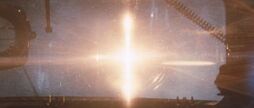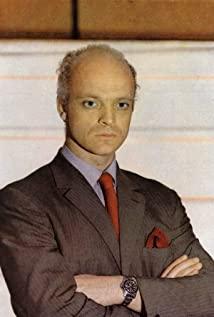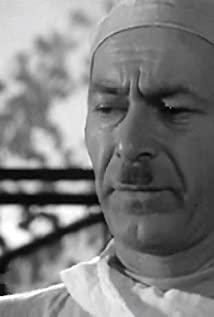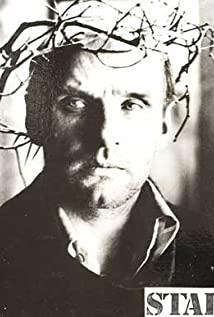Literary critic Charles Mendelssohn has few works that have survived.
The literary critic Charles Mendelssohn did not have many works that have been handed down, because at the time when the later generations were included in the collection, Ypres was in the war, and many documents were lost. When he found his archive in the basement of the Librarian, it caused quite a stir. The town was known as "Plague Town" a century ago; the librarian, Bakur, also serves as the vice-principal of the local Catholic primary school. , and therefore Bakur has contributed to the protection of modern culture.
In this literary exploration activity jointly initiated by the French novelist Jean Zola and titled "In pursuit of the passing time", in addition to the discovery of "Prudence (Volume 1)" by the literary critic Xia Mengde, there are also some masters. And a few works by anonymous people have also reappeared. Before the deadline, the new works that have been included are:
a) Prudence (Volume 1), a review of the poetry review of Polish author Stanislaw Lem's science fiction Solaris, not yet published. (Charmond, March or April 1916)
b) First edition of the novel Borrowing a Knife, Beaucoup D'argent. (Madame L'Eau, April 1917)
At the end of 1917, the Beaucoup D'argent publishing house and the printed manuscript of "Borrowing the Knife" were destroyed by the war, and the book did not circulate in the world. It is said that after the war, Madame L'Eau once again submitted the manuscript, but because of its sensitive and obscure content, it was abandoned.
c) A monograph on the possibility of "establishing the connection between snail pediography and human language and writing system". It does not involve biology, but redefines the concept of language and explores the boundaries of written description. (Ramon Lure, 1917)
d) A monograph on the journalism of William Howard Russell's "Civil War era" (Ramon Lure, 1918)
e) A draft of a monograph on the translation of piano "tone emotion"
f) To refute Luc Wesley (he denies the existence of an internal emotional dissolution system), taking Luc Wesley's work "Linlin Nationality Psychological Monthly" as an example. (Angouran, December 1918)
g) Rewriting Paul Vesuvius' "I, Oedipus" into a new heroic poem (The New French Review, January 1919)
h) A draft translation of Quevedo's "Avignon" titled "A Burned Case of Lovesickness"
i) A set of soulful sonnets dedicated to Countess Selene (1916)
j) A list of books covering Confucian philosophy and Chinese contemporary art. (Philosopher Mr. Xiong Shili focused on the lack of original meaning of the English translation of "New Theory of Consciousness", we did not find the English translation, unfortunately. - Original Note)
All the drafts of the "In Search of the Passing Time" project, in a certain order, are here. (Except for a birthday message to his daughter, written in mathematical language by a mathematician named Joe Newman.) And now we want to focus on this 1916 book Prudence (Volume 1) In the book, the poetic review of the novel Solaris, referred to by Chamond, is a truly great, subtle and complete work. This work may now be a model of the combination of stream of consciousness and audio-visual language, but we can't find any information about the publication of this work (it is not excluded that it was written by Xia Mengde himself in his early years, and later commented on his own poems. ) I know this claim seems absurd; the main purpose of this article is to prove the ins and outs of this "ridiculous" claim. At the same time, the psalm has not suffered any loss of value in this way.
In the first two chapters of "Prudence (Volume 1)", Xia Mengde has been defending himself on the philosophical thoughts in the film "Solaris". I don't know whether it was a coincidence or some interference, but his lengthy interpretation became "Solaris". Deliberateness" (Chapter 3, p. 24). At the end of his foreshadowing, the two languages of appreciation with completely different styles drove him to seek unity, and further stimulated his creative desire. All this led him to finally write "Organum" (Chapter 2, p. 23):
wake up from the sea
a distant whistle
Under the midnight sun
geometric box
Inside is a three-dimensional me
Your mind is four-dimensional
a little gloomy
But the changing light
Rational blue
I meditate in the dark
darkroom eye
supernatural hand
Panic in the hole
Organum is a simple fourth or fifth parallel polyphony technique that first appeared in the organ (Organ). - original note
Like Xia Mengde's earlier work, Fragments of Midnight Sighs (which the English edition of the book has deprived of this quality), the poem shrouds a sense of surrealism, and in its futuristic tone, the poem's The second half gave people a mental instability. Just as during the First World War in 1914 and 1918, behind the objective development of science and technology, there were human disasters. However, the stream-of-consciousness school represented by Edua Dujardin believes that, rather than reflecting on the war, this poem depicts more of Xia Mengde's own spiritual worries, which originate from "Soviet" Laris,” stemming from concerns about the mismatch between technological development and ethical development. Dujardin cites a sentence from Chamonde's "Something is Written" (1921) as evidence:
... The face of the Old Ones is so unknowable, just as everyone faces his own unknowable future. For that matter, why don't we equate them.
Xia Mengde was born into a traditional Catholic family, but in 1919, in an interview with the French "Perle TV", Xia Mengde publicly declared that he was an atheist religiously. At the same time, later writers also came to the conclusion when analyzing the works: Philosophically, Xia Mengde is agnostic. (Agnostic atheism: The existence or non-existence of God is unknowable and does not believe in religion.—Original note)
It was because of the same beliefs that Chamond met Bertrand Russell in 1928 and became friends, and helped Russell complete his later pamphlet Am I an Atheist or Agnostic? (subtitle: Debate on tolerance in the face of new dogma). In the spring of 1929, Russell wrote to Summermond from Monmouth:
. . . The purpose of our work is not to give a reasonable criterion for a future in which human beings cannot be self-sufficient. The key to the opposite is that the scientist pushes forward without any thought, while the philosopher has to turn around to fill in order to sew up the gap created by walking too fast. The answer itself is not the value of our existence.
In the same work, they also accepted that the term atheist could better express the religious posture of non-philosophical followers. Knowing these backgrounds helps us understand the poem "Organum".
Xia Mengde is good at depicting a certain kind of "an out-of-touch vision" through the dislocation of image correspondence: waking up from the sea / with the sound of distant whistle / facing the midnight sun. It's an endangered thriller that's meant to take readers out of routine and into the supernatural. In the tangible continent of the world, Xia Mengde pinned all objects on the virtual time island in his mind. This detachment from the human community has kept him isolated. But what is really frightening is that, beyond the perspective of God, which human beings try their best to reach, there is already another pair of invisible eyes—the outer universe, God, contingency, and entropy to monitor all of this.
This poem about Gnosticism goes beyond the heart of what the Solaris novel is trying to convey, but the subject remains the smallness of human intellect. Even against Xia Mengde's own beliefs, we still cannot deny that the wild fruit cannot bring Adam wisdom, Adam's wisdom comes from the experience world and reason.
Am I going to admit that Chamond is a contradictory and uncertain critic on "logos"? The general Gnostic system assumes that the world was created by some personified force, except that in some systems the necessity of an almost impersonal, dark impulse seems to have played a role in the creation. But Xia Mengde clearly and concretely pointed out that the existing thinkers in the village are only "I", not the personified power I represent; the attitude of "I" towards its dark impulses is by no means disrespectful or disloyal , but the fear of all other dictatorships.
So, we turned to the back of this page, printed with this nameless poem, which Xia Mengde understands as much as he understands any of his own works:
Algal blooms on the edge of the pool
This is how we breathe underwater
A bubble that breeds hidden thoughts and overflows from the mouth
Amplified dreams in the midnight sun
women are made of water
Can't drink the ancient water
is the spell of happiness love and death
"You like to ask terrible questions"
Humans are in a hurry as they explore the inner universe
Falling into Thucydides' Trap
The meaning of life and other eternal themes
placed at the end of life
no longer interested
man stays in objects he touches
as some kind of answer
"Solaris" takes a planet covered by a mysterious ocean as the background, and deduces the scientific myth of mankind's search for knowledge and love between life and death. The mysterious ocean seems to have wisdom and can materialize the privacy and evil thoughts in the human mind. Scientists have made various speculations around this unsolved mystery, but it is difficult to justify it. Any explanation is nothing more than "substituting a more convoluted mystery for another". - original note
Before we unfold the volume of Chamond's depiction of this poem, let's turn to Chamond's 1967 memoir, Life and Death. In several of them, I mentioned a joke that is often circulated between philosophers and politicians. This joke has since spawned many versions, but the one they like the most is the "egg" version. The story goes something like this:
The eggs were listed on the table, the leftmost egg said to the egg next to it: 'Look at the rightmost egg, it's so scary, it has hair', and then this egg passed the leftmost word to the next egg , and laid another egg, and slowly, these words finally reached the ear on the far right, answering 'I am a kiwi fruit'.
Every time a person in a high position holds a wine glass and tells this joke inadvertently, there will always be more or less echoes of laughter. After a brief smile, they will raise their necks and drink along the mouth of the glass. Under the nectar, more importantly, at this moment, they will observe each other closely along the liquid surface, and often those who laugh the most "outstanding" will be removed from their group. Because the story isn't just about a stupid "egg." Instead, it greatly satirizes the limited horizon of human beings, and shows how stupid any behavior called "thinking" in the omniscient perspective is. And these cognitions are what every philosopher and politician needs to have, and every laughter without knowing it is an obliteration of the pride of anyone in this group. The reason why Xia Mengde wrote this story is to make people understand that the most difficult quality for human beings is "self-knowledge". We come back to the verse itself.
Xia Mengde confessed in his afterword that he tried to interpret the poem in Milan Kundera-esque novel style. But such a move loses the character of the poetic style. The way he finally decided was the most common and simple one. In the 24-page margin of the second chapter, the publisher printed the uncorrected manuscript of Chamond (he wrote it directly on a printout of a poem).
If arranged according to the order of Xia Mengde's comments, it is like this:
Earth's Solaris Sea/There are certain behaviors in certain spaces/For example, dreams reveal the heart.
Freud / The source of life in matriarchal society / Witnessing everything / Interfering with everything / Lines (parole)
Inward exploration/contradiction, stagnation/eternel/loss of meaning
but we will understand / we only exist in / specific behavior in specific spaces / earth Solaris sea
Later people were reluctant to explain more about his explanation, and neither were we. But the definition of a "specific behavior in a specific space" of human existence is something to ponder. Before greater intelligence, creating a sufficiently realistic "reality" is nothing more than giving more detail. Xia Mengde discovered (perhaps unintentionally) that he could extend the boundaries of the real world with a new technique—delineating time and space with sufficient detail. This technique makes even the quietest days full of wonder, and when we see Prudence (Volume 1) clearly enough, isn't it a radical extension of the frontier for those who are compelled to be on the alert?
View more about Solaris reviews











